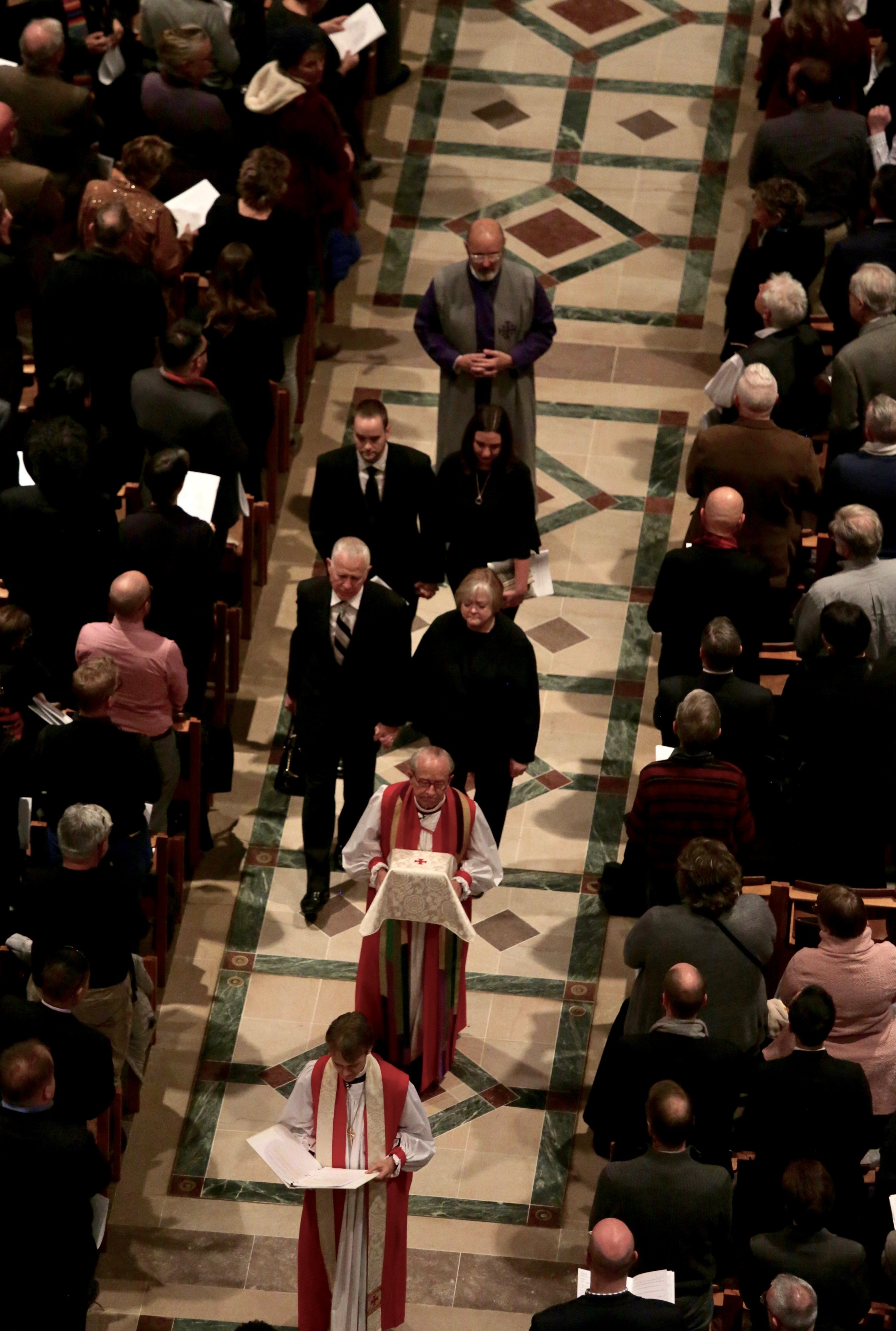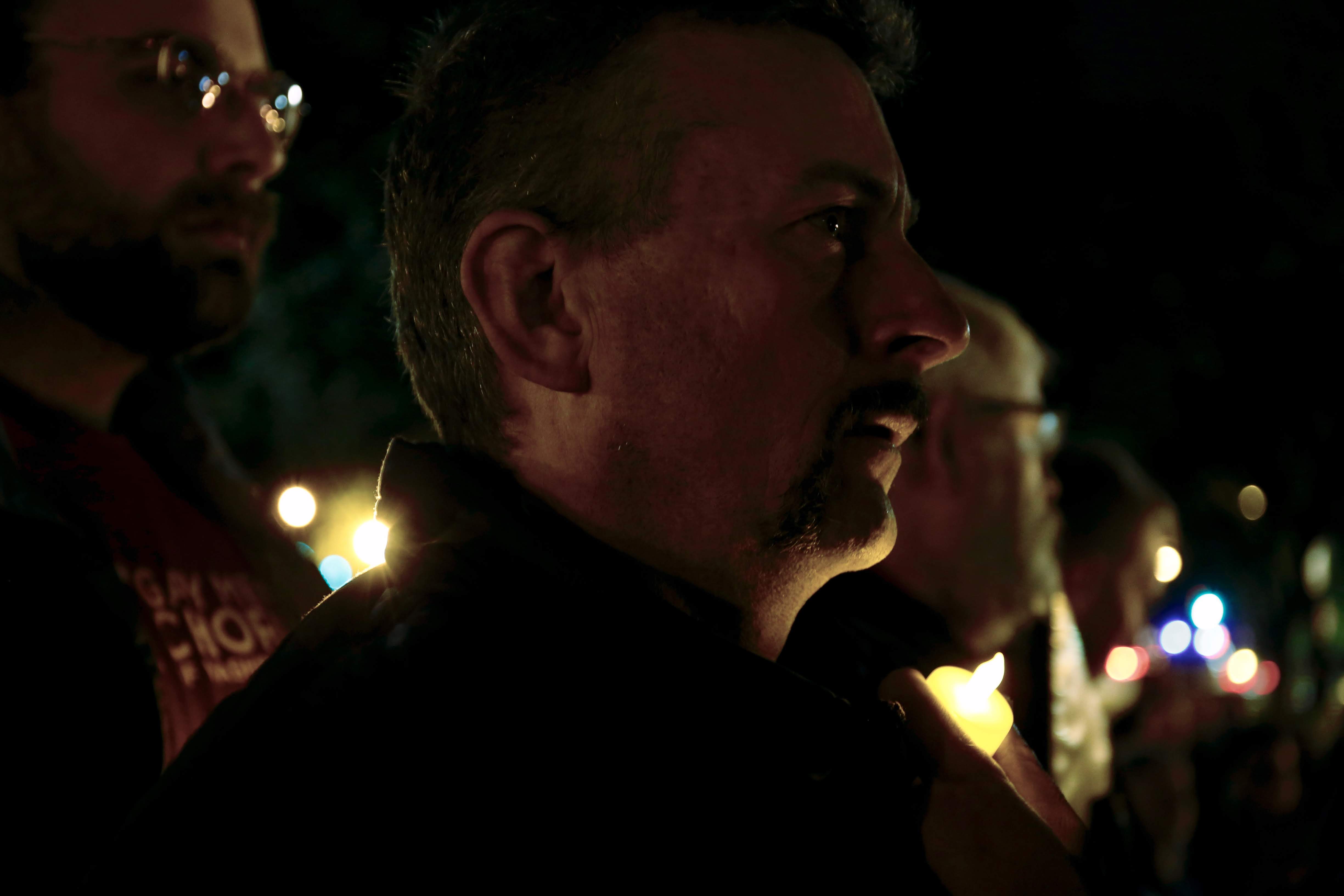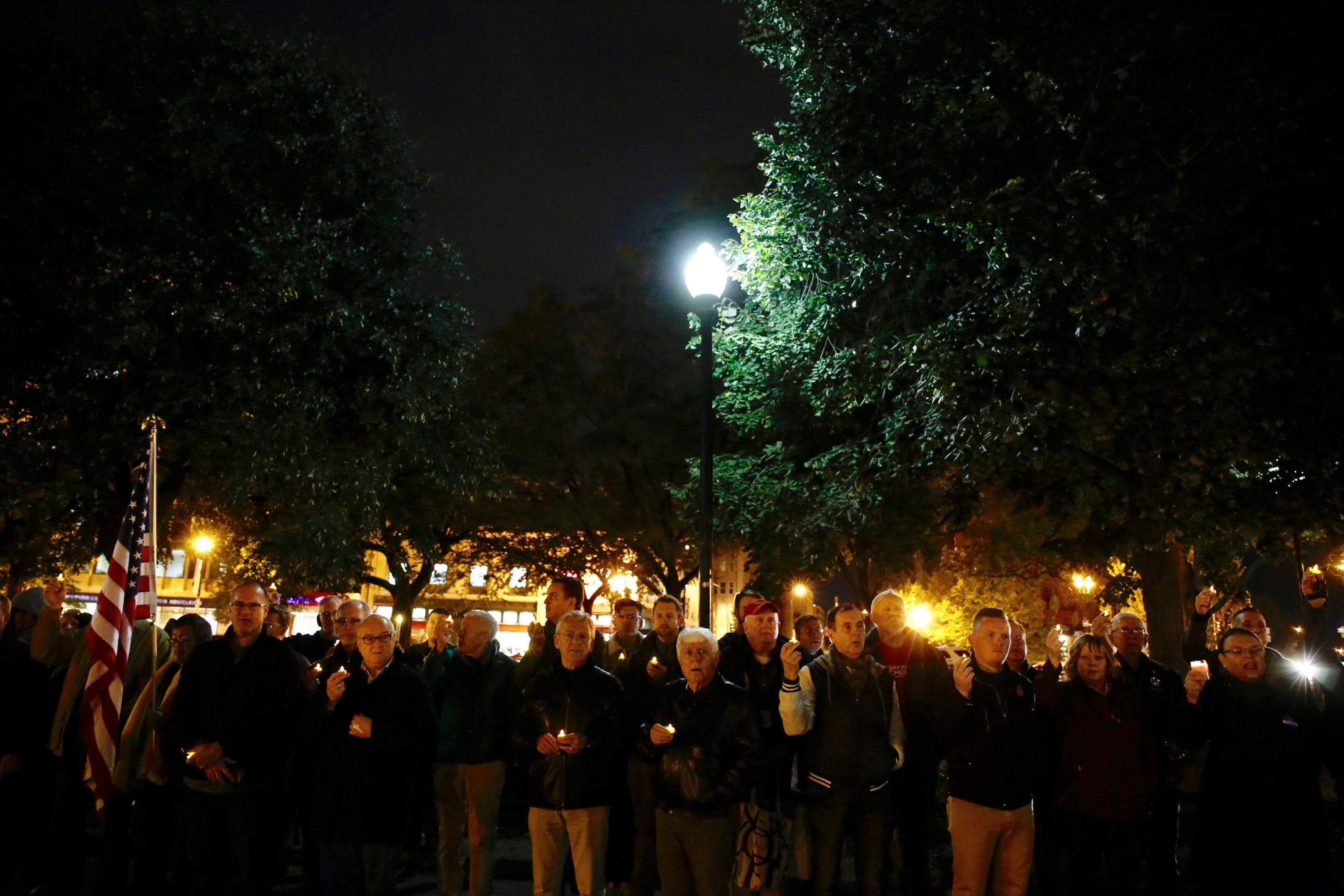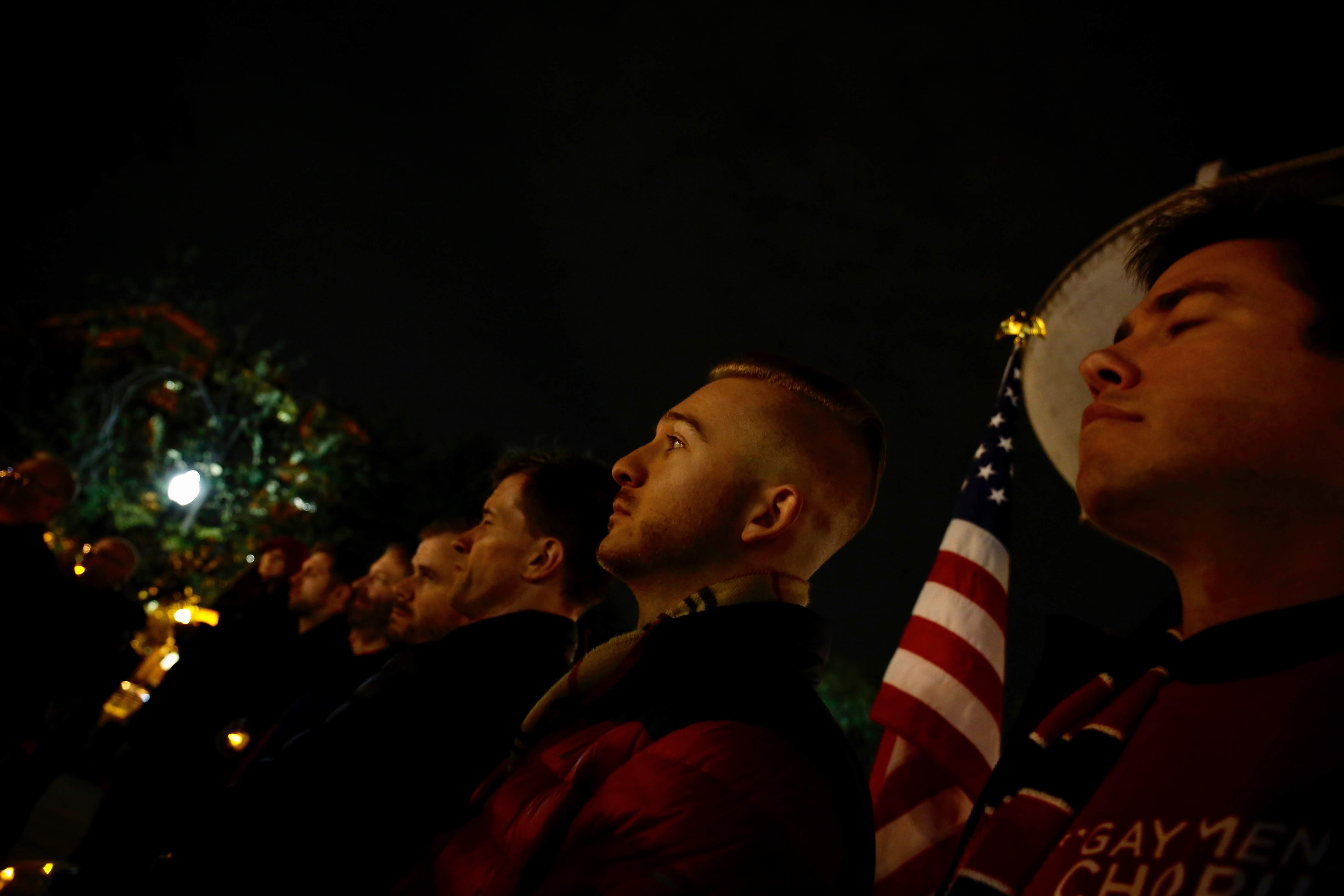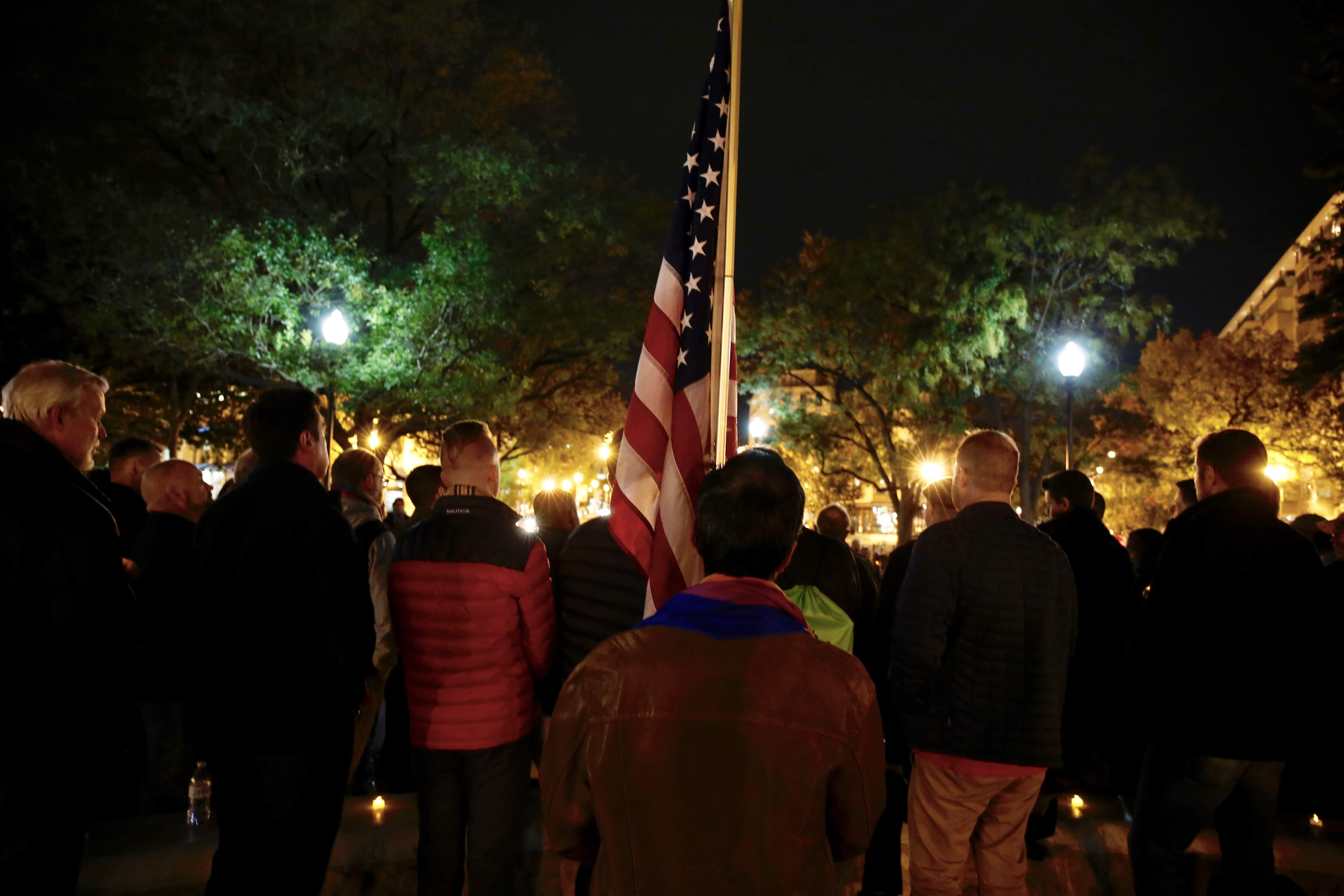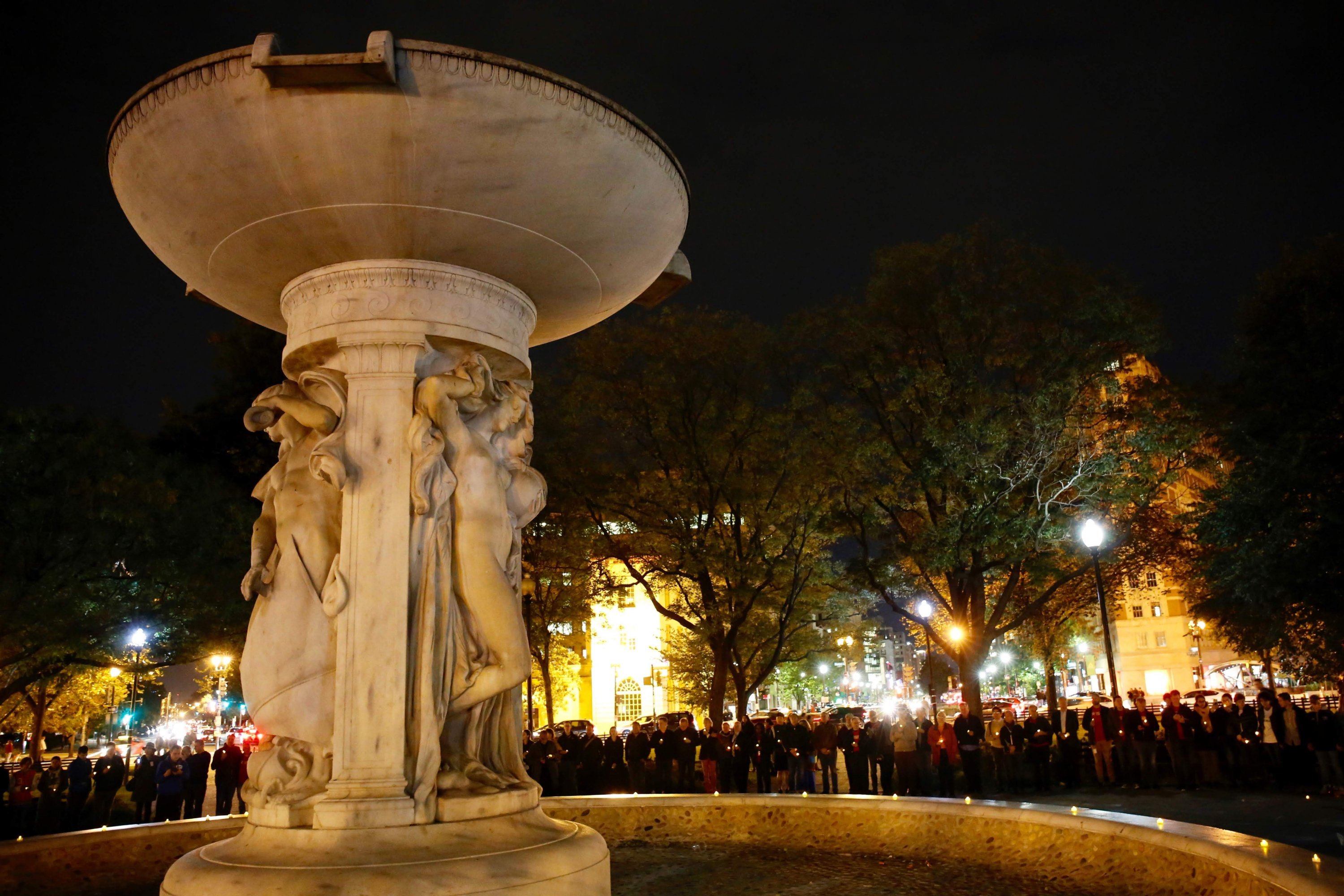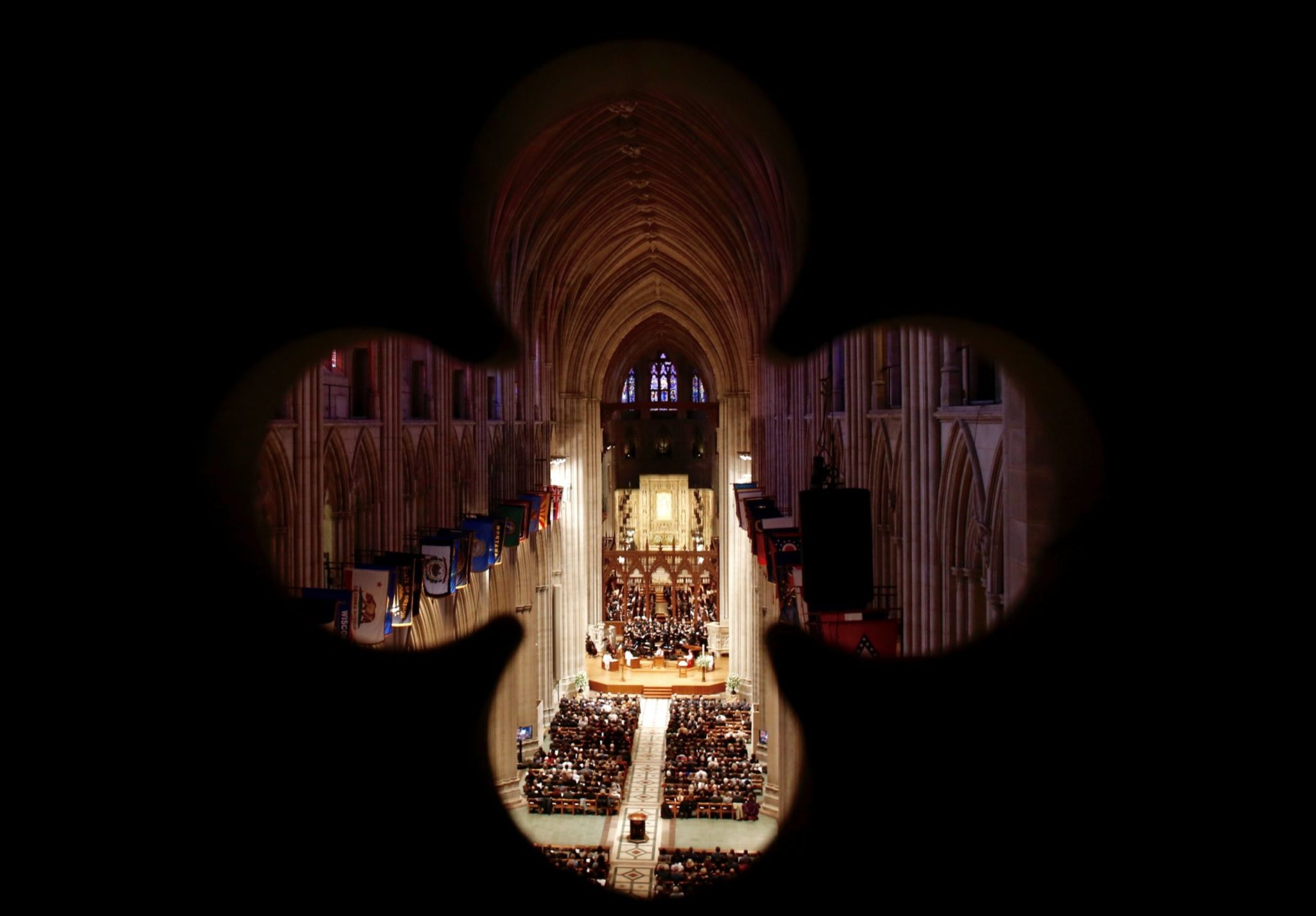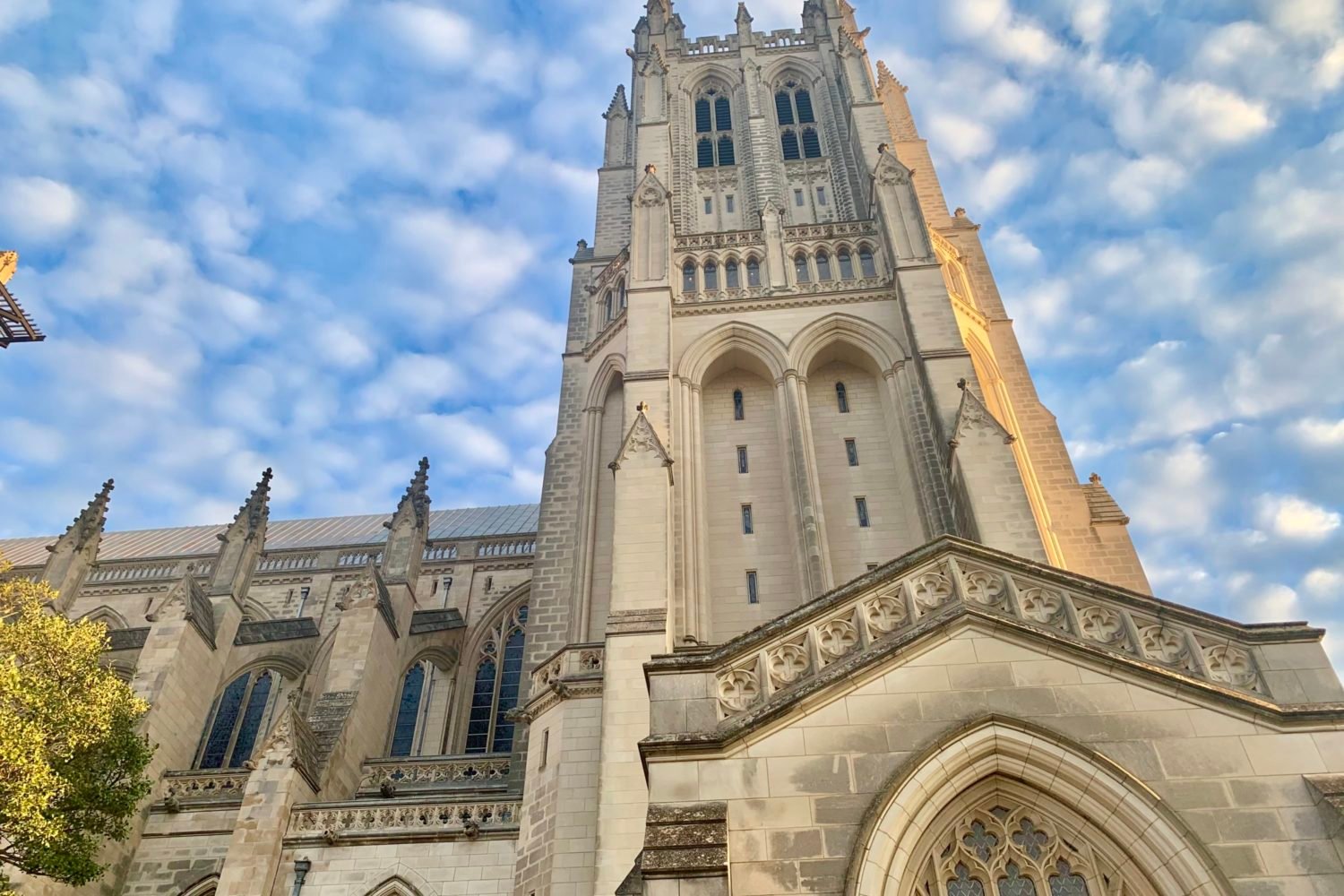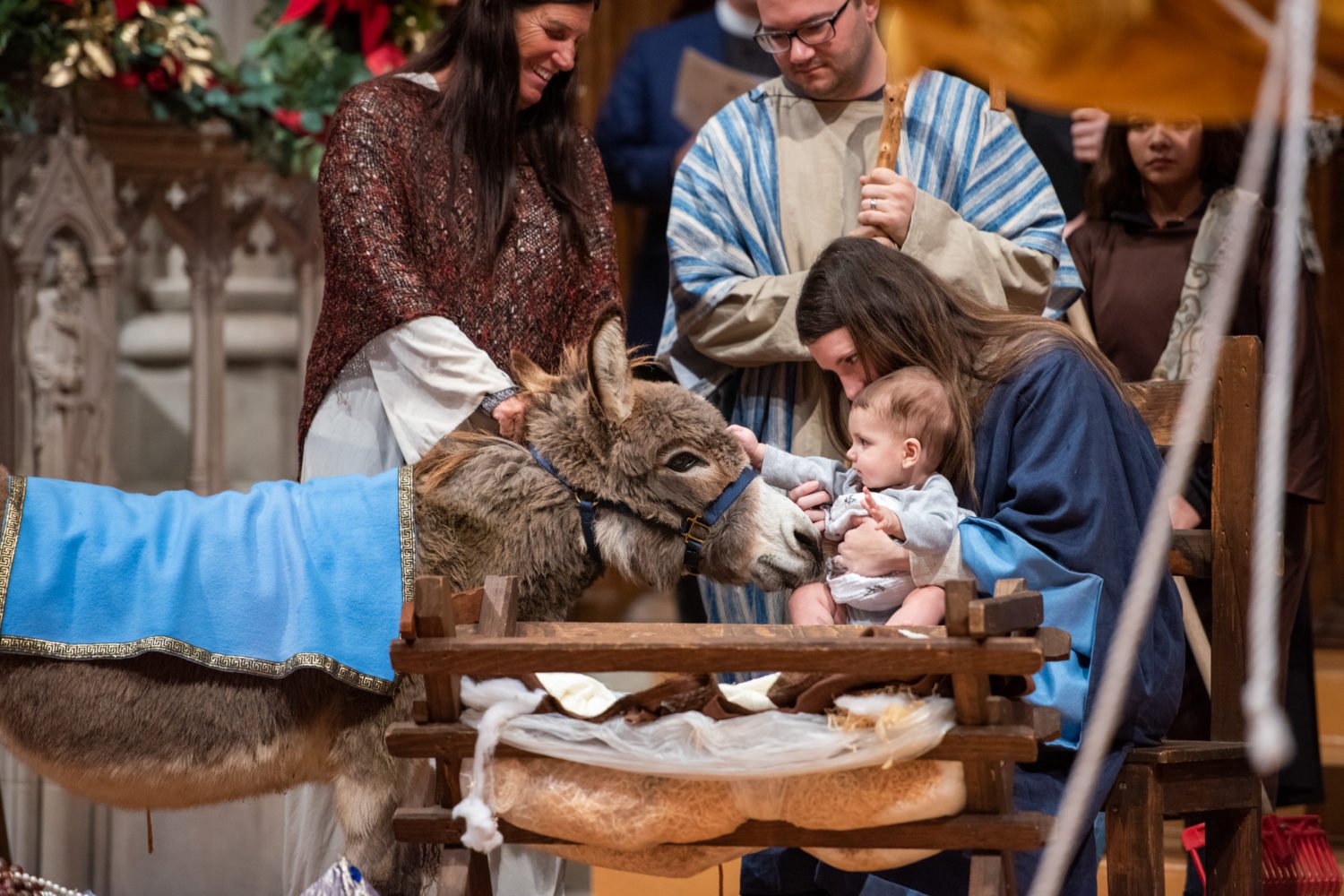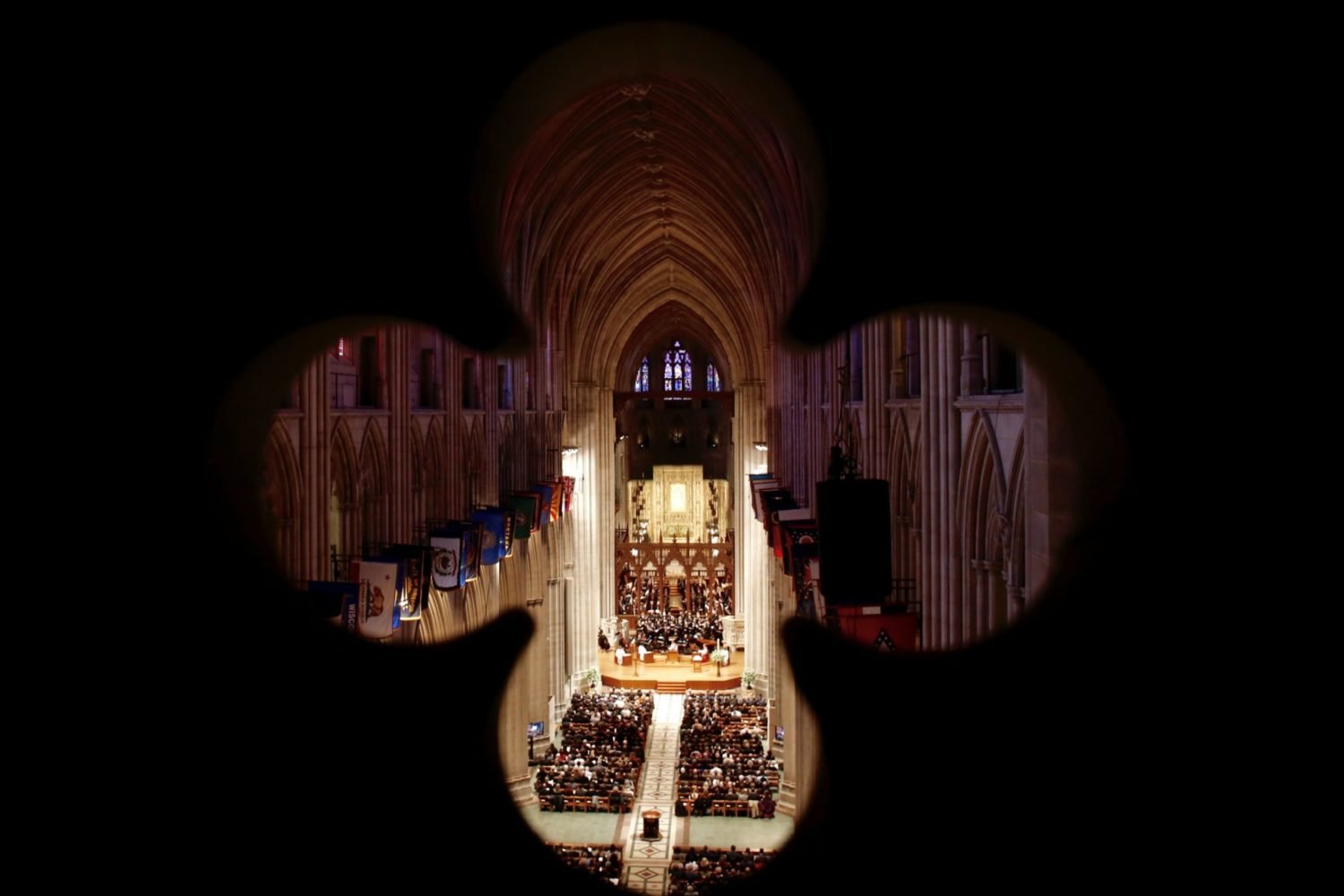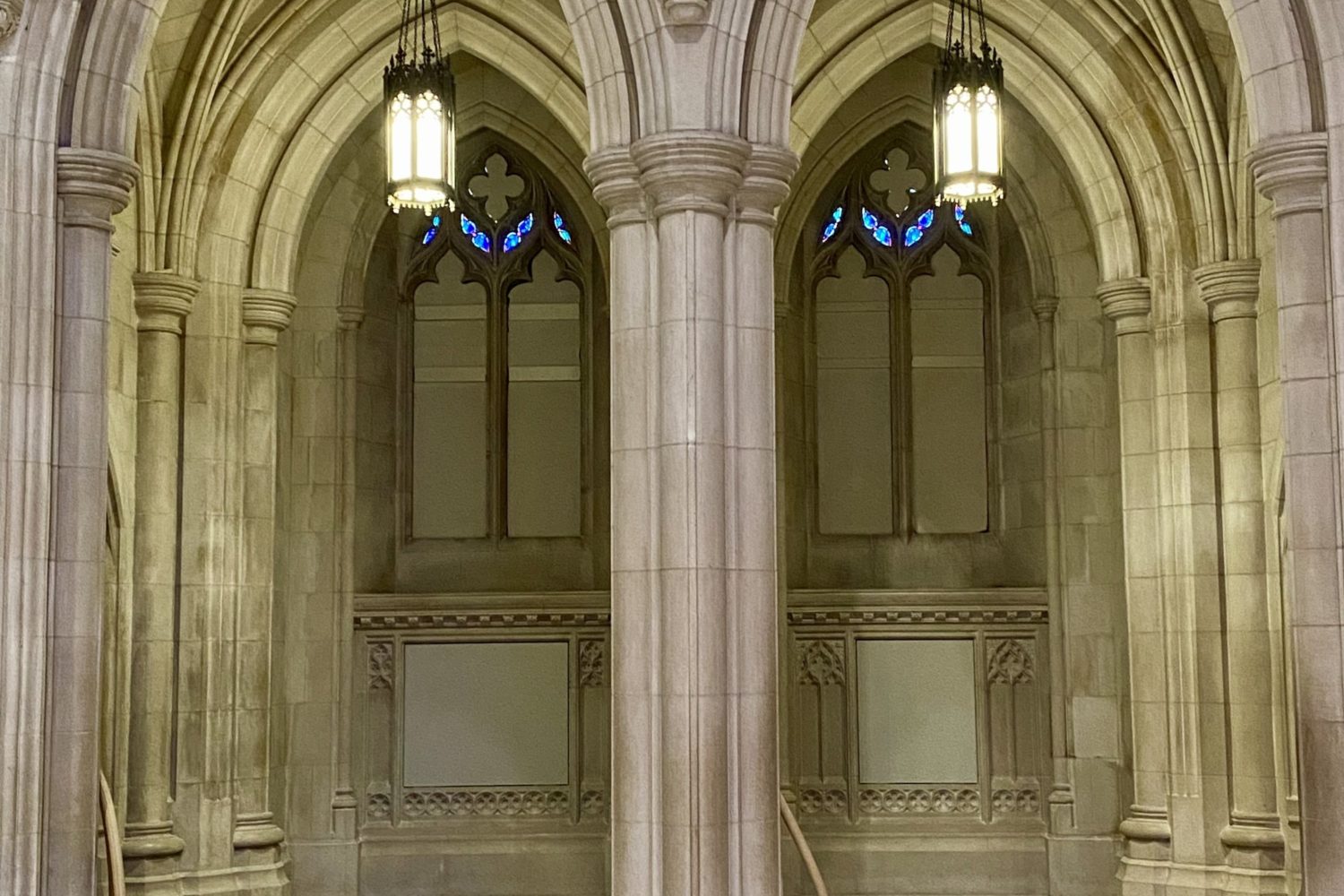A bit over 20 years separated the cold Laramie night when Matthew Shepard was fatally attacked and the gray Washington morning of his delayed, cathartic interment at Washington National Cathedral. Today, the young gay man who became, through unspeakable tragedy, one of the most powerful figures in the LGBTQ rights movement was laid to rest. Finally.
Both Washingtonians and out-of-towners came out to pay their respects. They came in large numbers, forming a long line in front of the cathedral’s doors ahead of the public service’s start. By the time the ceremony began at 10 AM, more than 2,000 people had found their way to the building that would soon become Shepard’s final resting pace.
Attendees brought plenty of color too, enough of it to compete with the cathedral’s kaleidoscopic stained-glass windows. The rainbow flag was on ribbons, on T-shirts, on scarves, on umbrellas, and on at least one impeccable bow tie.
“We’ve now got a home for Matthew,” Shepard’s father, Dennis, told the congregation early on. “A home that is safe.”
The 90-minute service included choirs, bishops’ sermons, and scripture readings. Among the participating bishops was Gene Robinson, the first openly gay person to be made a bishop in the Episcopal Church.
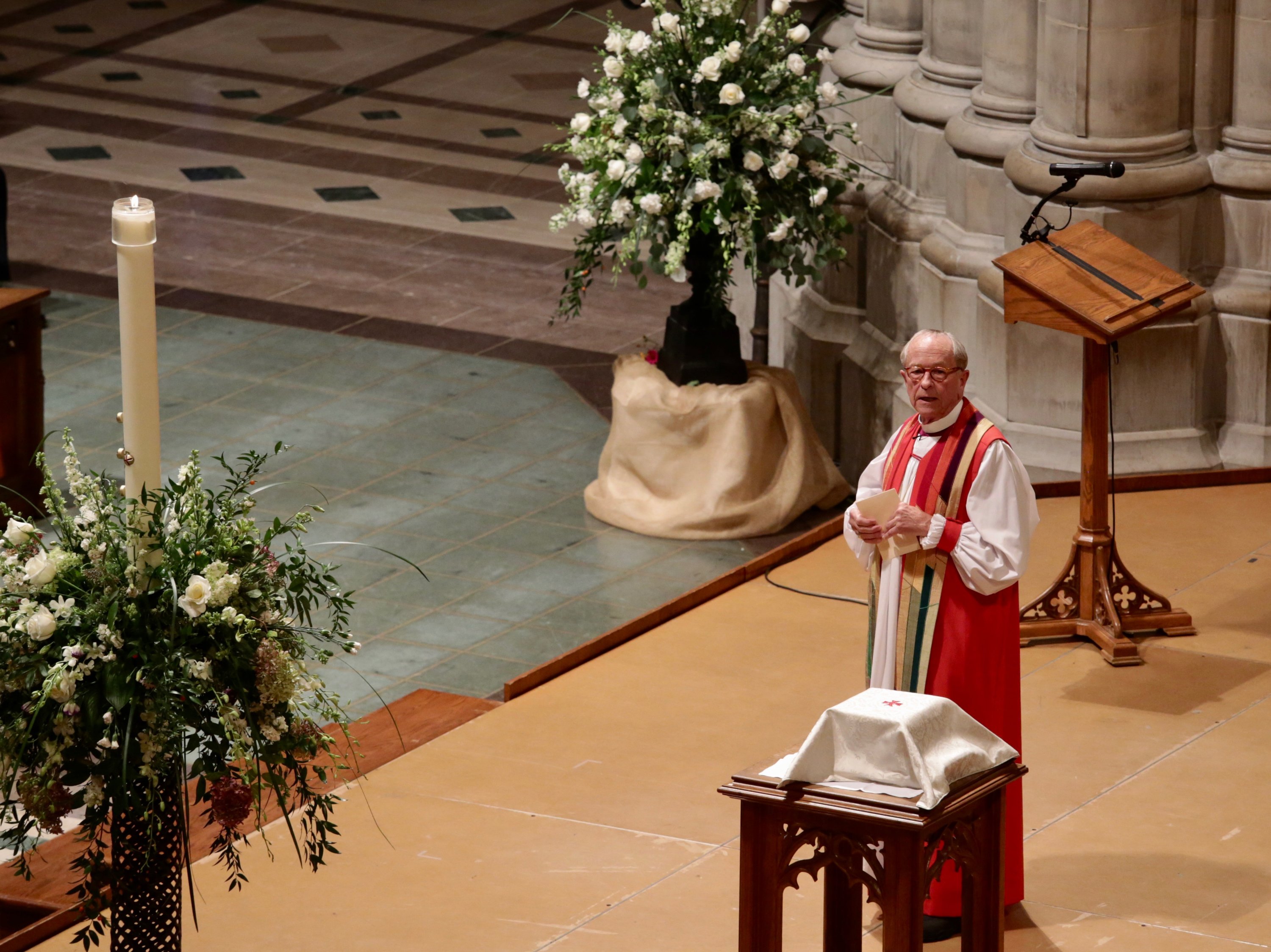
When greeting attendees—and extending a special welcome to members of the LGBTQ community—Robinson’s voice broke. Later, he explained he’d been “crying for a week now.”
In a moving homily that elicited both tears and laughter, Robinson addressed Matthew, telling him “you are safe now.” He also thanked Matthew’s parents for their activism and recalled Judy, Matthew’s mom, extending him a comforting note during his 2003 consecration, during which he had to wear a bulletproof vest.
“They could have grieved privately, but they shared Matthew with us,” he said. “And today, they are sharing him one last time.”
Robinson also reminded attendees that, despite the hard-won advances made over the last two decades, the LGBTQ community is still under attack. He referenced reports that surfaced earlier this week, which suggest that the Trump administration wants to narrow the legal definition of gender, a move that would roll back protections of transgender people. Interspersed in Robinson’s emotional homage to Matthew were multiple exhortations to go vote.
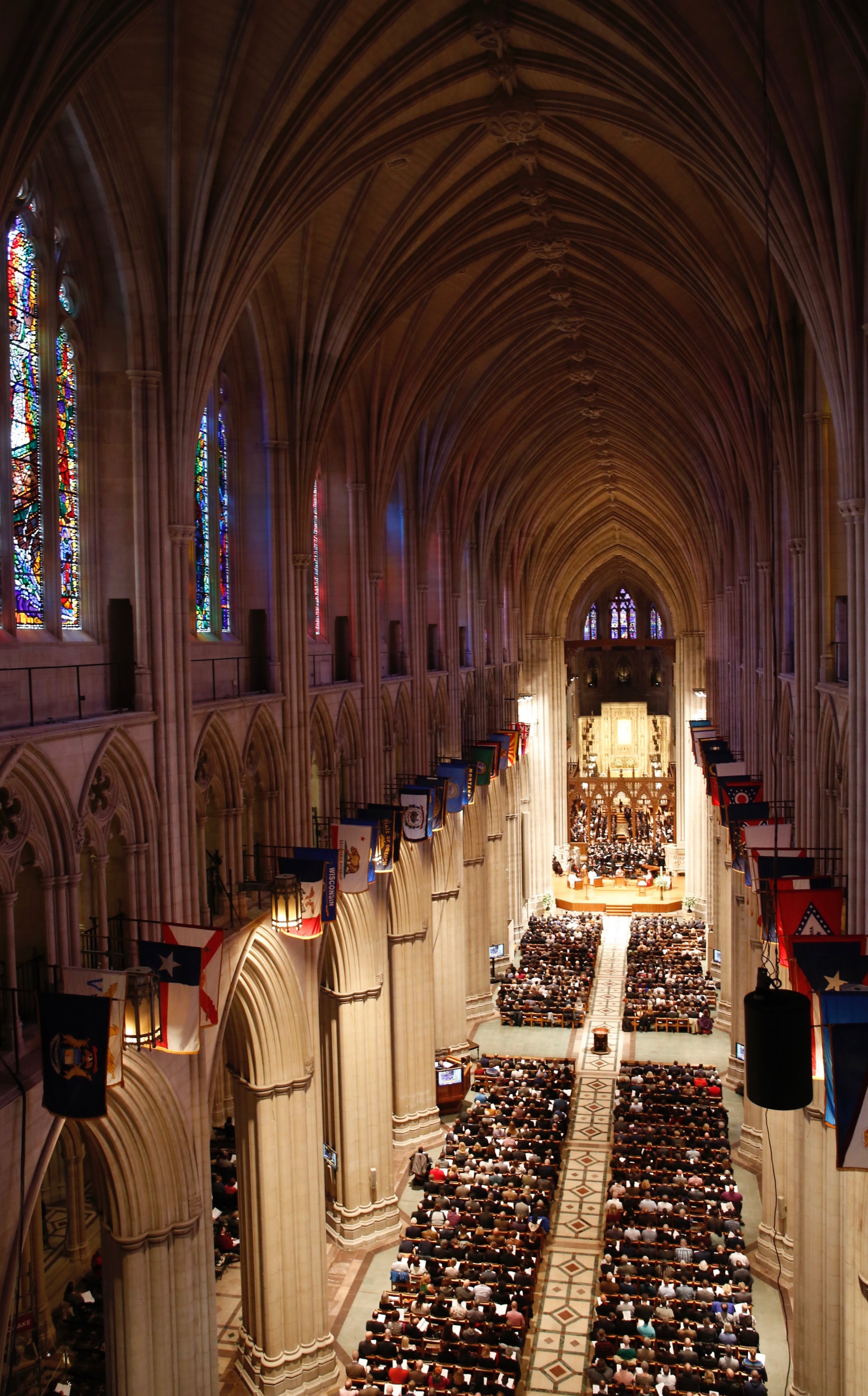
Among the 2,000 attendees were Chris Cormier Maggiano, 40, and Chase Maggiano, 34. They wed two years ago in the Episcopal Church and planned to cast their midterm election ballots immediately after the service. For both of them, the Shepard family played an important role in their respective journeys as gay men.
“It means something to me that [Matthew’s] recognized not only for who he was and his life, but also for our bigger community,” says Cormier Maggiano, who remembers first finding out about Matthew’s murder while in college at Carnegie Mellon. “I remember thinking it was tragic. And for me, as a closeted college student, that was why I didn’t want to come out. It just seemed like an impossible thing to think about. And now I’m married, and we have a beautiful home, and we’ll have kids in a couple of years. It’s mind-blowing.”
Maggiano was also closeted during his early college career. He credits a visit by Judy Shepard to his campus as crucial in helping him realize he could find a home in the LGBTQ community.
Also standing outside the Cathedral’s doors after the service’s conclusion was Beth Morrissey, who was waiting for her 16-year-old son, who had sang in the ceremony as part of the GenOUT Chorus, the DC area’s first-ever vocal ensemble for LGBTQ youth. On Morrissey’s coat was a PFLAG button. PFLAG, which stands for Parents, Families and Friends of Lesbians and Gays, is the nation’s largest family and ally organization. Morrissey is co-facilitator of PFLAG’s Alexandria chapter. She considers herself an “accidental activist.”
“I cried, but it was beautiful,” says Morrissey of the service. She notes that, though her son hadn’t even been born the year that Matthew died, the 1998 hate crime is something they’ve discussed. “We’ve talked about it, and how could you not,” she says. “But the fact that his family has done so much good for the rest of the kids following Matthew Shepard is really great. If we don’t stand up for our kids, no one else is going to.”
Among the attendees at the event were also seven representatives of the DC Chapter of the Sisters of Perpetual Indulgence, an international order of drag nuns devoted to community service (Judy Shepard is one of the sisters’ patron saints).
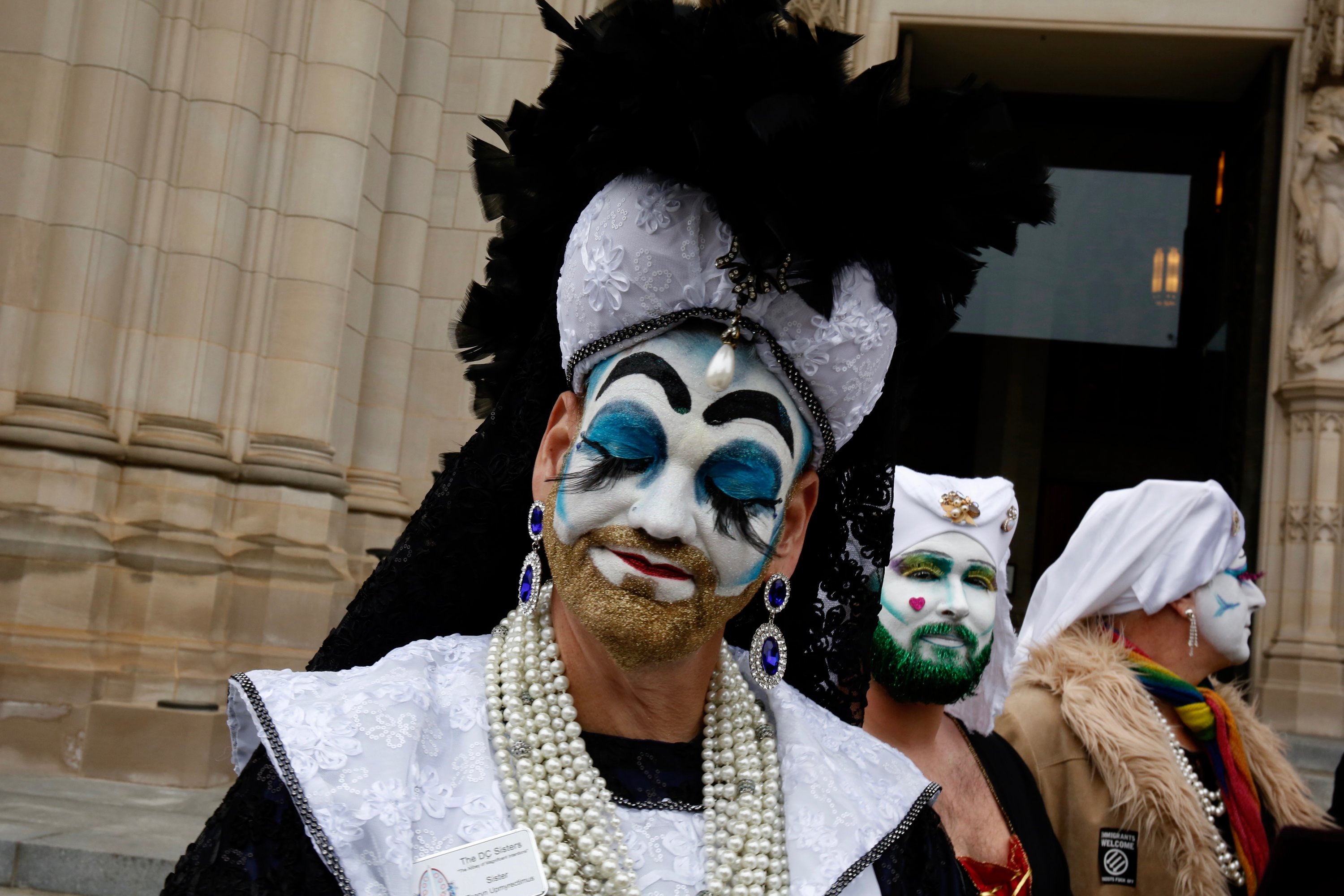
Sister Sedusa, 37, identifies as genderqueer and says she’s never felt more welcome in a church than this morning. According to her, it was inevitable that her group would partake in the service.
“As members of the community ourselves who, as we say, it’s our mission to go out and be there for our community, we could not in good conscience miss today,” she says. “It’s one of those things where we had to be here and share this grieving.”
For Sister Sedusa, the power of the narrative around Matthew Shepard was something she couldn’t escape.
“I was raised in the South and when all of this came out about Matthew, it hit me pretty hard. I really didn’t have the words for it, except, ‘it could have been me.’ Because the South during the ’80s wasn’t the most welcoming place for the LGBTQ community,” she says. “I was terrified. It was one of those things where at any moment, I know I could have been the next one. I could have been Matthew Shepard and that was difficult to get through. I hate that Matthew had to got through all this. It is heartbreaking. But I am proud of all the good that has come out of it.”
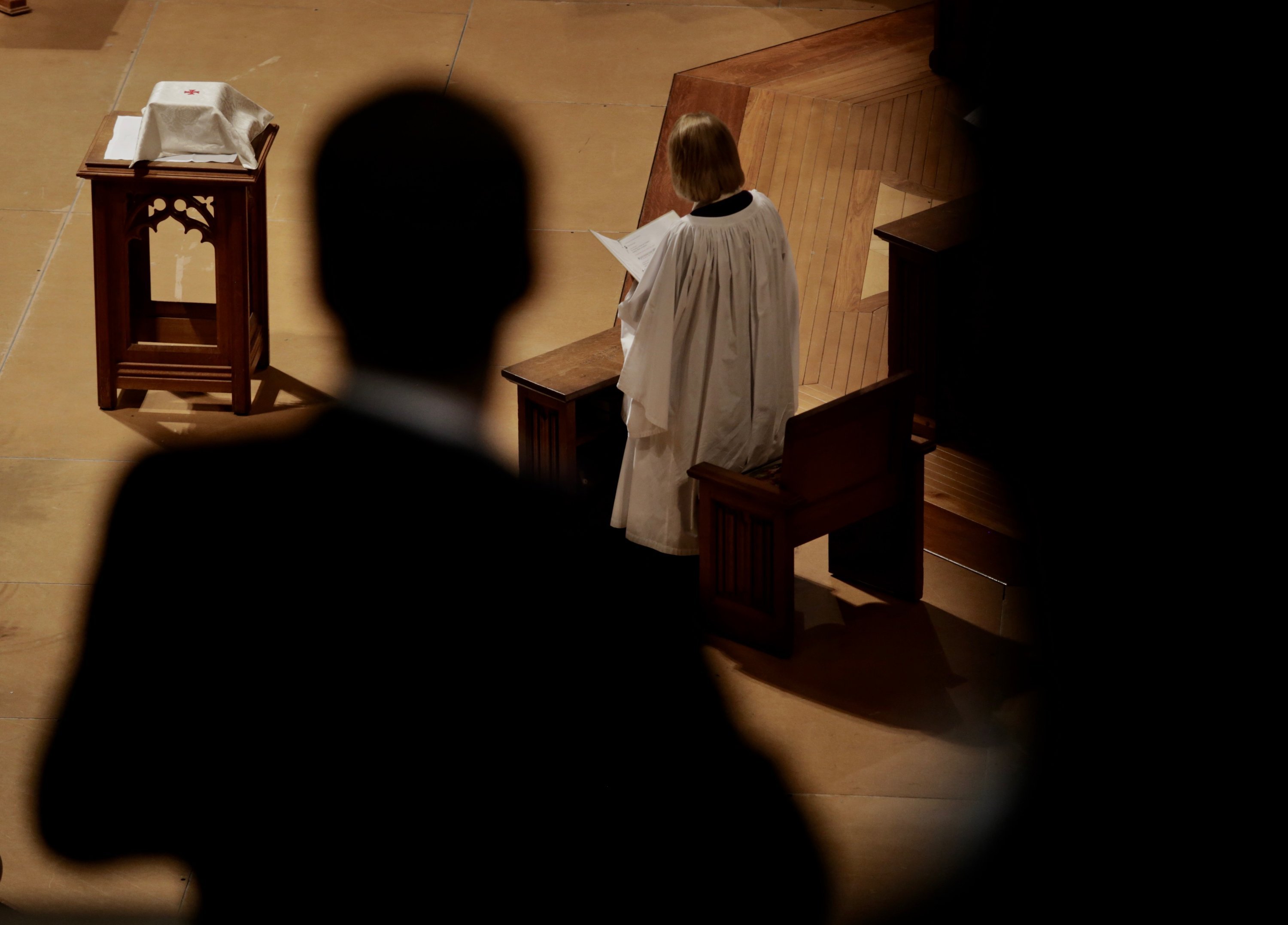
It wasn’t only DC area-residents at the National Cathedral this morning.
Romaine Patterson, 40, made the trip from New York City. She was friends with Matthew from their college days at the University of Wyoming.
“I was at his memorial when he died. I’ve been working in his memory for 20 years in activism. I’ve been sick as a dog all week, but I’ve managed to make it here because this is the kind of thing you have to be at,” she says. “It was a really beautiful ceremony and it’s nice to see he has someplace safe to be. I think the is the perfect place for him.”
For Patterson, today brought some closure.
“I finally have a place I can come visit him,” she says. “I think that will be nice.”
